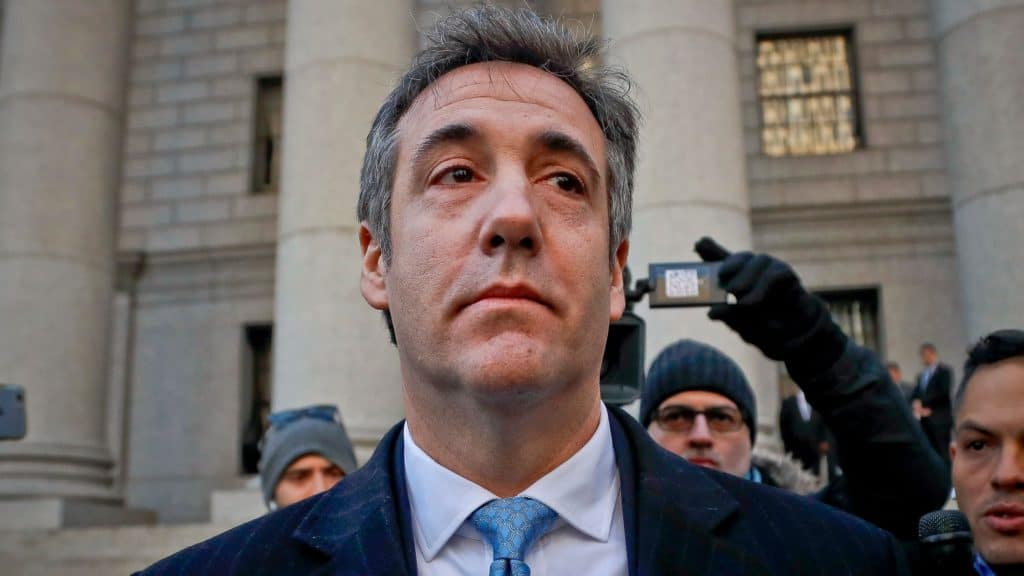

Bill Cosby & Michael Cohen Want Out
Several months before the Coronavirus landed in New York and Westchester, the debate over bail reform, and the reduction in the number of persons held in jail for crimes, had already begun. New York State had enacted bail reform, on Jan 1, which reduced the number of crimes that persons convicted of a crime could be held in jail for.
There were supporters and opponents of the new bail reform in New York state, and then the COVID-19 pandemic hit, and a different call went
out. To release as many prisoners as possible from jail who had been convicted of non violent offenses, for the health and safety of the prisoners, but also the corrections officers.
That call for prisoner release for COVID has resulted in several high profile celebrities and prisoners, trying to get out of jail. They include, former Trump attorney Michael Cohen, actor-comedian Bill Cosby and Paul Manafort, who worked on the Trump Presidential campaign.
Michael Cohen has been approved for release from Federal prison by US Attorney General Bill Barr, who has ordered all Federal prisons to “immediately maximize” the release of prisoners to home confinement to prevent the spread of the virus, and to focus on the most medically vulnerable members of the prison population. Cosby and Manafort are waiting on a decision.
The argument for the release of Cosby and others is that there health and age is a factor that will lead to their possible death in jail if they test positive for Coronavirus. But the release of Federal inmates due to COVID has been slow, with less than 1,000 prisoners released out of the total federal prison population of 174,000.
Many news reports have also highlighted the bad hygiene in our prisons. In most jails, hand sanitizer is illegal because it can be used to make alcoholic drinks. Inmates also have to pay for soap in most jails.
Advocates for Bail Reform and early release claim that the same argument can be used for both circumstances. “Release is the only effective means to protect the people with the greatest vulnerability to COVID-19 from transmission of the virus, and allows for greater risk mitigation for all people who remain held or working in New York state prisons,” said Tina Luongo, attorney-in-charge of the Legal Aid Society’s criminal defense practice.
“Governor Cuomo and DOCCS still have a chance to protect people incarcerated in state prisons by releasing the most vulnerable – anything less would demonstrate an utter lack of compassion and would be inconsistent with the State’s goals of reducing the spread of this disease.” Anyone 55 years or older in state prison is now being reviewed for early release, according to the Gov. Cuomo’s office.
Many are hoping that the current discussion on early release of older prisoners to protect them from COVID-19 will lead to a larger discussion about releasing more non violent offenders from jail overall. Do we lock up too many prisoners in this country? Is there an alternative means of justice? And has the pandemic made us re-examine who to put in prison?
The debate over bail reform in Westchester has focused on whether persons who are repeat offenders, or are committing similar crimes again and again should be automatically released after their arrest. The law enforcement community has said this is not a good practice.
But in the recent State budget that was passed, some changes to bail reform were made. State Senator Shelley Mayer provided an update in her summary on the budget last month.
“The Senate Majority responded to community concerns about criminal justice and bail reforms by including additional felonies and some serious misdemeanors that are charged repeatedly in the list of offenses eligible for bail. This means that the judge has the discretion to determine if bail is appropriate to be set in some limited circumstances, and records will be kept regarding the judge’s application of bail to ensure accountability.
The 2020-2021 State Budget includes:
“Improvements to New York’s bail law such as making several high level offenses now bail eligible including certain sex crimes, high level drug offenses, domestic violence felonies, crimes resulting in a death, and offenses directly related to an individual’s flight risk. The reform proposal also:
“Creates a mechanism to address individuals who repeatedly commit crimes involving damage to property or persons; Expands reporting requirements so that the Department of Criminal Justice Services and the Office of Court Administration can better track outcomes of the state’s new bail law; and Maintains the existing bail structure where almost misdemeanors and non-violent felonies are not bail eligible.
“Also Providing $40 million to support the implementation of discovery reforms; Barring gun ownership for individuals who commit serious offenses in other states.
“Empowering law enforcement to seize weapons for at least 48 hours when responding to domestic violence incidents. Law enforcement will be authorized to seize firearms that are in plain view when conducting a lawful search in responding to a domestic violence incident.
“Keeping guns out of the hands of domestic abusers by ensuring District Attorneys follow current practices and Court Clerks promptly provide information on misdemeanor domestic violence convictions to the State Department of Criminal Justice Services to ensure these offenses are easier to identify on a criminal record for gun background checks,” writes Sen. Mayer.
In Westchester, discussions have begun quietly and behind closed doors about how the prison population has dropped dramatically since the 1990’s but the number of County Corrections officers has remained the same. While nobody wants to come out publicly and call for fewer corrections officer, others are wondering if the time for such a conversation is now, based on the Coronavirus, the discussions about bail reform, and the economic troubles facing the county in the upcoming budget.





